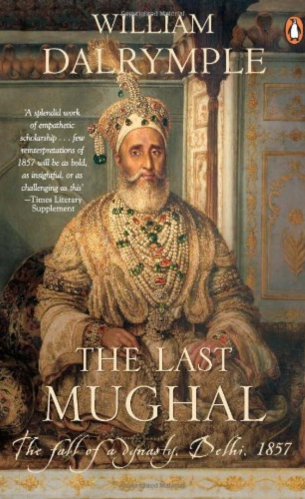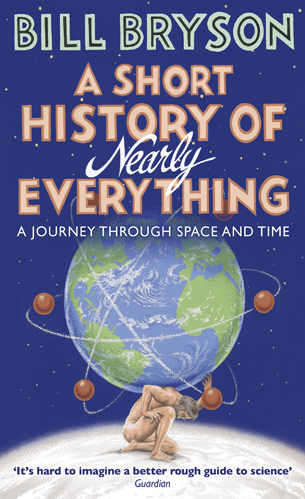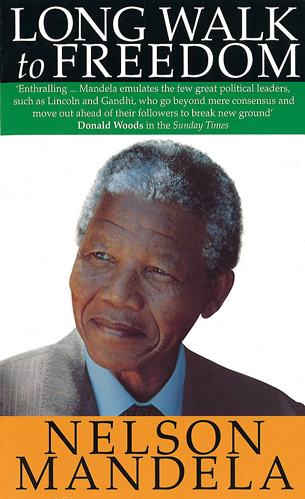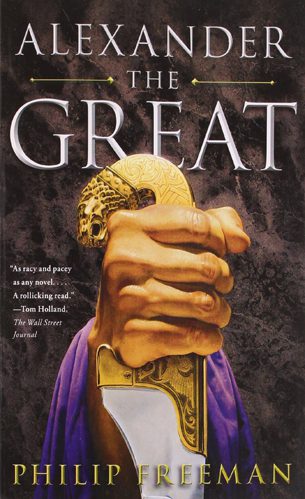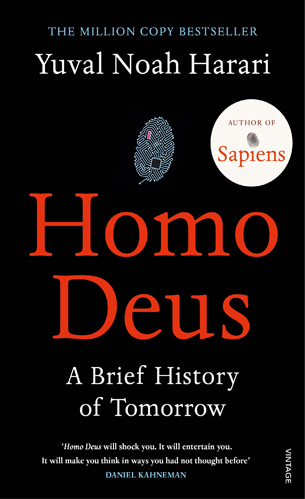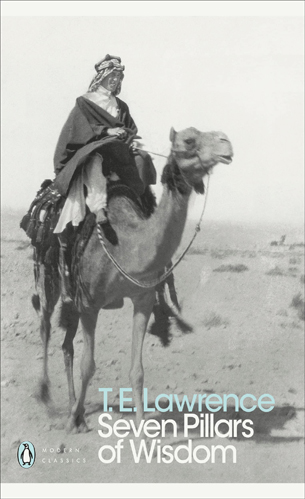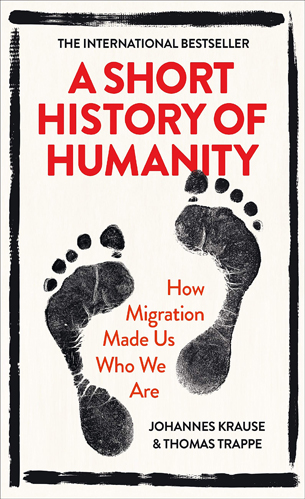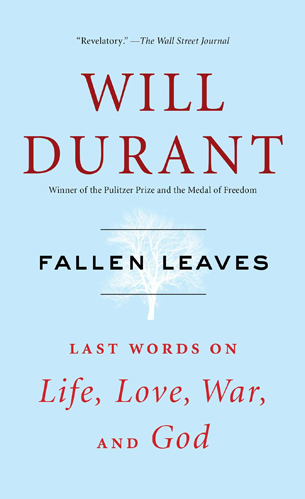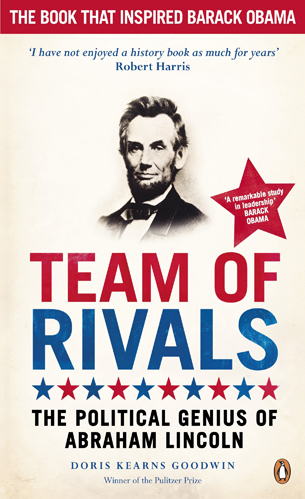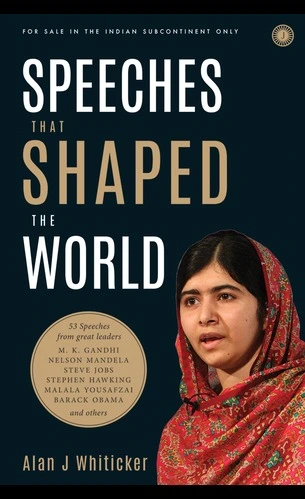Category
- Discounted Books
- English Book Bundles
- University Magazines
- சிறுவர்களுக்கான புத்தகங்கள்
- Children Books
- English Books
- Current Affairs
- Military & Intelligence
- Short Stories
- Fiction
- Poetry
- Environment & Nature
- Science
- Medicine
- Linguistics
- Atheism & Agnosticism
- (Auto)Biography & Memoir
- Business & Management
- Creativity
- Economics
- Education & Research
- Health & Nutrition
- History
- Humor
- Love & Relationships
- Parenting
- Personal Development
- Personal Finance
- Philosophy
- Politics
- War
- Psychology
- Religion & Spirituality
- Society & Culture
- Sports
- Travel & Adventure
- Technology & the Future
- True Crime
- Women Empowerment
- தமிழ் Books
- Book Bundles ( தமிழ் )
- சட்டம்
- இயற்கை
- கட்டுரை
- கணிதம்
- பயணக்குறிப்புகள்
- விவசாயம்
- அரசியல்
- ஆரோக்கியம்
- உளவியல்
- புனைவு
- காதல் மற்றும் உறவு
- சமூகவியல்
- சுயசரிதைகள் மற்றும் நினைவுகள்
- சுயமுன்னேற்றம்
- தத்துவஞானம்
- தொழில்நுட்பம் & எதிர்காலம்
- பொருளாதாரம்
- போர்
- பணம்
- மதம் & ஆன்மீகம்
- வணிகம் & மேலாண்மை
- வரலாறு
- விஞ்ஞானம் & பிரபல அறிவியல்
- விளையாட்டு
- சினிமா
- கவிதைகள்
- குழந்தை வளர்ப்பு
- குற்றம்
- மருத்துவம்
- மொழி
Product categories
- Children Books
- Discounted Books
- English Book Bundles
- English Books
- (Auto)Biography & Memoir
- Atheism & Agnosticism
- Business & Management
- Creativity
- Current Affairs
- Economics
- Education & Research
- Environment & Nature
- Fiction
- Health & Nutrition
- History
- Humor
- Linguistics
- Love & Relationships
- Medicine
- Military & Intelligence
- Parenting
- Personal Development
- Personal Finance
- Philosophy
- Poetry
- Politics
- Psychology
- Religion & Spirituality
- Science
- Short Stories
- Society & Culture
- Sports
- Technology & the Future
- Travel & Adventure
- True Crime
- War
- Women Empowerment
- University Magazines
- சிறுவர்களுக்கான புத்தகங்கள்
- தமிழ் Books
- Book Bundles ( தமிழ் )
- அரசியல்
- ஆரோக்கியம்
- இயற்கை
- உளவியல்
- கட்டுரை
- கணிதம்
- கவிதைகள்
- காதல் மற்றும் உறவு
- குற்றம்
- குழந்தை வளர்ப்பு
- சட்டம்
- சமூகவியல்
- சினிமா
- சுயசரிதைகள் மற்றும் நினைவுகள்
- சுயமுன்னேற்றம்
- தத்துவஞானம்
- தொழில்நுட்பம் & எதிர்காலம்
- பணம்
- பயணக்குறிப்புகள்
- புனைவு
- பொருளாதாரம்
- போர்
- மதம் & ஆன்மீகம்
- மருத்துவம்
- மொழி
- வணிகம் & மேலாண்மை
- வரலாறு
- விஞ்ஞானம் & பிரபல அறிவியல்
- விளையாட்டு
- விவசாயம்
The Last Mughal: The fall of a Dynasty Delhi 1857
Rs. 3,490.00 Original price was: Rs. 3,490.00.Rs. 3,190.00Current price is: Rs. 3,190.00.

William Dalrymple
In The Last Mughal, William Dalrymple delves into the fall of the Mughal Empire, using new sources to reveal the plight of Bahadur Shah Zafar II, the last Mogul emperor. Set in 1862 Rangoon, the book follows Zafar’s life as a skilled calligrapher and poet, who was reduced to a mere figurehead by the British East India Company. As the sepoy mutiny of 1857 unfolded, Zafar, powerless to resist, was declared the king of India only to witness the British capture Delhi and leave the city in ruins. Through Dalrymple’s meticulous research, this revelatory account sheds light on one of history’s bloodiest upheavals, and has won prestigious awards such as the Duff Cooper Prize and the Vodafone Crossword Book Award. Published in May 2007, this paperback edition of The Last Mughal is a compelling exploration of a pivotal era in Indian history, with contributions from eminent Urdu scholar Mahmood Farooqui
Out of stock
Notify me when stock available
About the Author
Book Specifications
Title: The Last Mughal: Chronicle of Indian History explaining India Before Independence
Author: William Dalrymple
Language: English
Binding: Paperback
Pages: 578
Weight:630g
Published Year: 2022
Publisher: Penguin
ISBN: 9780143102434
Dimensions: 20.7 x 4.4 x 13.4 cm
Print size: Please feel free to drop us a message.
Related products
-
Jesus Lived in India: His Unknown Life Before and After the Crucifixion
Rs. 1,690.00or 3 X Rs.563.33 with Read more
Read moreHolger Kersten
Jesus Lived In India is a book by theologian, Holger Kersten, which presents the connection that Jesus had with India. It cites evidence that Jesus lived in India for a large part of his life after the crucifixion and died there at old age. The book asks its readers the question of why Christianity chose to ignore it’s connections with the religions of the east.
Historical sites traced back Jesus to Israel, the Middle East, Afghanistan, and India. According to this book, this had been found out as a result of investigative research. Many startling conclusions have been presented by Holger Kersten.
Some of the allusions made by this book include statements that Jesus followed the ancient Silk Road to India and studied Buddhism there, adopting its tenets in order to become a master of spirituality. This book states that he survived the crucifixion, and after that returned to India where he finally died in Jammu & Kashmir.
Key Features:
- The book is based on research by Holger Kersten.
- It was not well-received by the mainstream scholarship.
- Jesus In India was originally a treatise written by Mirza Ghulam Ahmad.
-
A Short History of Nearly Everything: A Journey through Space and Time
Rs. 3,490.00or 3 X Rs.1,163.33 with Read more
Read moreBill Bryson
- Best-Selling Popular Science book of the 21st Century
- Samuel Johnson Prize for Non-Fiction Nominee (2004)
- EU Descartes Prize for science communication (2005)
- J. A. Hollon palkinto Winner (2006)
- The Aventis Prizes for Science Books for best general science book (2004)
The ultimate eye-opening journey through time and space, A Short History of Nearly Everything is the biggest-selling popular science book of the 21st century and has sold over 2 million copies.
‘Truly impressive…It’s hard to imagine a better rough guide to science.’ Guardian
‘A travelogue of science, with a witty, engaging, and well-informed guide‘ The Times
Mr Bryson has a natural gift for clear and vivid expression. I doubt that a better book for the layman about the findings of modern science has been written ― Sunday Telegraph
A fascinating idea, and I can’t think of many writers, other than Bryson, who would do it this well. It’s the sort of book I would have devoured as a teenager. It might well turn unsuspecting young readers into scientists. And the famous, slightly cynical humour is always there ― Evening Standard
A genuinely useful and readable book. There is a phenomenal amount of fascinating information packed between its covers … A thoroughly enjoyable, as well as educational, experience. Nobody who reads it will ever look at the world around them in the same way again ― Daily Express
Of course, there are people much better qualified than Bill Bryson to attempt a project of this magnitude. None of them, however, can write fluent Brysonese, which, as pretty much the entire Western reading public now knows, is an appealing mixture of self-deprecation, wryness and punnery ― Spectator
The very book I have been looking for most of my life… Bryson wears his knowledge with aplomb and a lot of very good jokes ― Daily Mail
-
Long Walk to Freedom
Rs. 4,690.00or 3 X Rs.1,563.33 with Add to cart
Add to cartNelson Mandela
- Alan Paton Award (1995)
These memoirs from one of the great leaders of our time are ‘essential reading for anyone who wants to understand history – and then go out and change it’ –Barack Obama
‘Enthralling . . . Mandela emulates the few great political leaders such as Lincoln and Gandhi, who go beyond mere consensus and move out ahead of their followers to break new ground’ —Sunday Times
‘The authentic voice of Mandela shines through this book . . . humane, dignified and magnificently unembittered’ —The Times
‘Burns with the luminosity of faith in the invincible nature of human hope and dignity . . . Unforgettable’ –Andre Brink
Riveting…both a brilliant description of a diabolical system and a testament to the power of the spirt to transcend it —Washington Post
-
Alexander the Great by Philip Freeman
Rs. 4,290.00or 3 X Rs.1,430.00 with Add to cart
Add to cartPhilip Freeman
- Society of Midland Authors Award Nominee for Biography (2012)
“Freeman tells us about Alexander’s life like a novel—a remarkably interesting novel, to boot.” —Sarah Hann, The Saturday Evening Post
“Fast-paced and dramatic, much like Alexander himself, this is a splendid introduction into one of the most dramatic true stories of history.” -Adrian Goldsworthy, author of Antony and Cleopatra
“As racy and pacey as any novel. Here, in vivid and exciting detail, are all the familiar highlights of Alexander’s career…. Mr. Freeman’s ambition, he tells us in his introduction, was ‘to write a biography of Alexander that is first and foremost a story.’ It is one he splendidly fulfills…. A rollicking read.” -Tom Holland, The Wall Street Journal
“Freeman does not hero worship Alexander, and does not paper over his subject’s many faults. At times, Alexander can seem like an almost mythic figure, but, as Freeman shows, he was all too human.” -Matthew Price, The Boston Globe
“Lean, learned, and marked by good judgment on every page, Alexander the Great is also a roaring good yarn. Philip Freeman has the eye of someone who has walked in Alexander’s footsteps, and he writes with grace and wisdom.” -Barry Strauss, author of The Spartacus War and professor of history, Cornell University
“The author’s love for his subject infuses this footnote-free narrative with an unfussy breeziness, and readers are sure to come away from Alexander’s story with an essential grasp of the details and understanding of his character.” -Kirkus Reviews
“A well-written, chronological narrative that allows Alexander’s remarkable career and achievements to speak for themselves. . . Readers will appreciate this fine account of a man truly deserving of the title ‘Great.'” -Booklist
-
Homo Deus: A Brief History of Tomorrow
Rs. 3,290.00or 3 X Rs.1,096.67 with Add to cart
Add to cartYuval Noah Harari
**THE MILLION COPY BESTSELLER**
NEW YORK TIMES BESTSELLER
Wellcome Book Prize Nominee for Longlist (2017)
“Homo Deus will shock you. It will entertain you. Above all, it will make you think in ways you had not thought before.” — Daniel Kahneman, author of Thinking Fast, and Slow
“Thrilling to watch such a talented author trample so freely across so many disciplines… Harari’s skill lies in the way he tilts the prism in all these fields and looks at the world in different ways, providing fresh angles on what we thought we knew… scintillating.” — Financial Times
“Spellbinding… This is a very intelligent book, full of sharp insights and mordant wit… It is a quirky and cool book, with a sliver of ice at its heart… It is hard to imagine anyone could read this book without getting an occasional, vertiginous thrill.” — Guardian
“Harari is an intellectual magpie who has plucked theories and data from many disciplines – including philosophy, theology, computer science and biology – to produce a brilliantly original, thought-provoking and important study of where mankind is heading.” — Evening Standard (London)
“I enjoyed reading about these topics not from another futurist but from a historian, contextualizing our current ways of thinking amid humanity’s long march–especially…with Harari’s ability to capsulize big ideas memorably and mingle them with a light, dry humor…Harari offers not just history lessons but a meta-history lesson.” — Washington Post
“What elevates Harari above many chroniclers of our age is his exceptional clarity and focus.” — London Sunday Times
“A remarkable book, full of insights and thoughtful reinterpretations of what we thought we knew about ourselves and our history.” — The Guardian
“Provocative…the handiwork of a gifted thinker.” — Jennifer Senior, New York Times
“[A] great book…not only alters the way you see the world after you’ve read it, it also casts the past in a different light. In Homo Deus, Yuval Noah Harari shows us where mankind is headed in an absolutely clear-sighted & accessible manner.” — Mail on Sunday
-
Seven Pillars of Wisdom
Rs. 3,390.00Original price was: Rs. 3,390.00.Rs. 2,390.00Current price is: Rs. 2,390.00.or 3 X Rs.796.67 with Read more
Read moreT. E. Lawrence
Seven Pillars of Wisdom is the autobiographical account of T.E. Lawrence – also known as ‘Lawrence of Arabia’ – of his service in the Arab Revolt during the First World War, published in Penguin Modern Classics. Although ‘continually and bitterly ashamed’ that the Arabs had risen in revolt against the Turks as a result of fraudulent British promises of self-rule, Lawrence led them in a triumphant campaign that revolutionized the art of war. Seven Pillars of Wisdom recreates epic events with extraordinary vividness.
‘Round this tent-pole of a military chronicle, Lawrence has hung an unexampled fabric of portraits, descriptions, philosophies, emotions, adventures, dreams’ — E. M. Forster
‘I am not much of a hero-worshipper, but I could have followed T.E. Lawrence over the edge of the world’ — John Buchan, author of The Thirty-Nine Steps
-
A Short History of Humanity: How Migration Made Us Who We Are
Rs. 2,790.00or 3 X Rs.930.00 with Read more
Read moreJohannes Krause & Thomas Trappe
A highly readable, personal guide to the twists and turns in unravelling ancient DNA: Krause and Trappe expertly unravel the story of ancient DNA to reveal how the new field of archaeogenetics has utterly transformed understanding of our deep past. ― Rebecca Wragg Sykes, author of Kindred: Neanderthal Life, Love, Death, and Art
A Short History of Humanity is an eloquent and timely reminder that viruses and other pathogens of infectious disease are merely fellow-travellers in an epic journey that began when the first human migrants left Africa around 200,000 years ago. The solution to pandemics is not to close borders in the hope of keeping viruses out but to recognise that we are a fundamentally peripatetic species united in our shared genetic inheritance and common humanity. ― Mark Honigsbaum, author of A Pandemic Century
A valuable contribution to our understanding of who we are and how we got here. ― Tim Marshall, bestselling author of Prisoners of Geography
One of those books that stops you dead in your tracks and makes you say out loud – why didn’t I know that before? So easy to read. So logically argued. So satisfyingly sensible and thought-provoking. Read it, think about it, and then read it again. An absolute revelation. ― Professor Sue Black, bestselling author of All That Remains
Extremely enriching. Rarely, have I been able to learn so much and get such radically new insights over 250 pages ― Süddeutsche Zeitung
-
Fallen Leaves: Last Words on Life, Love, War, and God
Rs. 2,790.00Original price was: Rs. 2,790.00.Rs. 2,290.00Current price is: Rs. 2,290.00.or 3 X Rs.763.33 with Read more
Read moreWill Durant
Praised as a “revelatory” book by The Wall Street Journal, this is the last and most personal work of Pulitzer Prize–winning author and historian Will Durant, discovered thirty-two years after his death.
“Fallen Leaves is in some ways a slight book. But it is also a revelatory one. Most of Durant’s work is about the thoughts and actions of others. Fallen Leaves is very much about the thoughts of Will durant concerning—well, almost everything. You’ll find short essays on childhood, old age, death, war, politics, capitalisn, art, sex, God and morality. … Above all, Fallen Leaves is a portrait of a sensibility. … Durant was a remarkable specimen of that nearly extinct species, a civilized liberal of wide learning and even wider sympathy for the fundamentals of human aspiration.” ― The Wall Street Journal
“Short but persuasive commentaries on a diversity of topics from a respected scholar of humanity.” ― Kirkus Reviews
“Some passages, such as his observations on youth and middle age, are personal and specific, while others, such as his ruminations on the existence of God, border on philosophy. . . . [And others] still carry a beneficial sting, such as his thoughts on war and nationalism and his plea for racial harmony (Durant’s civil rights advocacy dated back to 1914). . . . a thought-provoking array of opinions.” ― Publishers Weekly
“Some of his musings are provocative, even outrageous…this is a work that demands we think, and it is a worthy conclusion to a long and distinguished career.” ― Booklist
-
Team of Rivals: The Political Genius of Abraham Lincoln
Rs. 2,990.00Original price was: Rs. 2,990.00.Rs. 2,690.00Current price is: Rs. 2,690.00.or 3 X Rs.896.67 with Read more
Read moreDoris Kearns Goodwin
- Benjamin Barondess Award (2006)
- Lincoln Prize (2006)
- New-York Historical Society American History Book Prize
- Winner of the Bostonian Society’s 2006 Bostonian History Award
- Finalist for the National Book Critics Circle Award for biography
- Finalist for the Los Angeles Times Book Prize in biography
A wonderful book … a remarkable study in leadership — Barack Obama
A brilliant book … I couldn’t get enough of it –– Alex Ferguson
Goodwin’s narrative abilities are on full display here. A portrait of Lincoln as a virtuosic politician and managerial genius — Michiko Kakutani ― New York Times
I have not enjoyed a history book as much for years — Robert Harris ― The Observer (Books of the Year)
The most uplifting book that I have read in the last two decades. Sensational — Jon Snow
“An elegant, incisive study of Lincoln and leading members of his cabinet that will appeal to experts as well as to those whose knowledge of Lincoln is an amalgam of high school history and popular mythology…. Goodwin has brilliantly described how Lincoln forged a team that preserved a nation and freed America from the curse of slavery.” -James M. McPherson, The New York Times Book Review
“A brilliantly conceived and well-written tour de force of a historical nar rative…. Goodwin’s contribution is refreshingly unique…. Goodwin’s emotive prose elevates this tome from mere popular history to literary achievement.” -Douglas Brinkly, The Boston Globe
“Goodwin finds her Lincoln hiding in plain view. He is Lincoln the politician, but one whose political shrewdness ends up being indistinguishable from wisdom. She has written a wonderful book. There is a man in it.” -Garry Wills, American Scholar
“A sweeping, riveting account… Put simply, Goodwin’s story of Lincoln’s great, troubled, triumphant life is a star-spangled, high-stepping, hat-waving, bugle-blowing winner.” – Daily News (New York)
-
Speeches that Shaped the World
Rs. 1,690.00or 3 X Rs.563.33 with Read more
Read moreAlan J. Whiticker
53 Speeches from great leaders M. K. GANDHI, NELSON MANDELA, STEVE JOBS, STEPHEN HAWKING, MALALA YOUSAFZAI, BARACK OBAMA and others. The passing of time allows many speeches to take on a deeper meaning and poignancy. Others have become an iconic part of our times.
Alan J. Whiticker’s Speeches that Shaped the World is a collection of the most potent and memorable speeches throughout history. These speeches highlight recurring themes such as politics and power, war and peace, civil rights and human rights. What they all have in common is the power to inspire—emotionally, politically and socially.In this brilliant collection, many of history’s greatest orators and pivotal moments are featured. These speeches shaped and changed the world. Different eras and many nations are represented, with several speeches from famous women—speeches of clarity and hope. Along with famous names like John F. Kennedy, Martin Luther King, Franklin D. Roosevelt, Winston Churchill, Mahatma Gandhi, Nelson Mandela, Margaret Thatcher and Hillary Clinton there are also lesser known orators who are remembered for making their mark on history.

